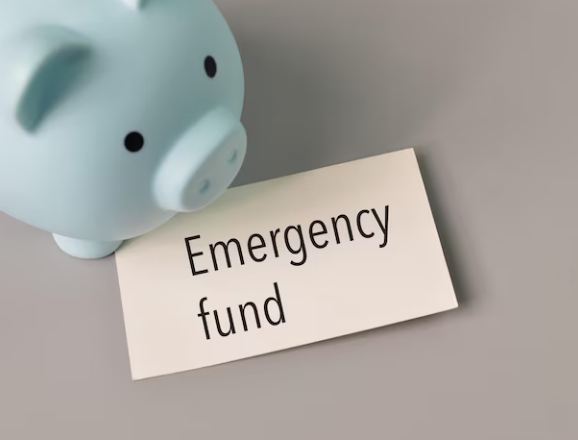Life is full of unexpected twists and turns, and sometimes, financial emergencies can catch us off guard. Whether it’s a sudden medical expense, a car repair, or a job loss, having an emergency fund in place can provide peace of mind and a sense of security. In this blog, we will delve into the importance of building an emergency fund and how it serves as your financial safety net. We will explore practical steps to start and grow your emergency fund, enabling you to face life’s uncertainties with confidence and resilience.
- The Significance of an Emergency Fund:
An emergency fund is a stash of money set aside to cover unforeseen expenses and financial setbacks. It acts as a safety net, shielding you from the stress and anxiety that often accompany emergencies. Having an emergency fund means you won’t have to rely on credit cards, loans, or borrow from friends and family during challenging times. It provides you with financial freedom and empowers you to handle unexpected situations without derailing your long-term financial goals.
- How Much Should You Save?
Determining the right amount to save in your emergency fund depends on your individual circumstances. As a general rule of thumb, aim to save at least three to six months’ worth of living expenses. This amount can cover essential costs such as rent or mortgage, utilities, groceries, and insurance premiums. If you have dependents or an irregular income, consider saving a more substantial emergency fund to ensure greater security.
- Start Small and Be Consistent:
Building an emergency fund may seem daunting, especially if you’re starting from scratch. However, the key is to start small and be consistent. Set achievable savings goals each month, even if it’s just a modest amount. Automate your savings by setting up regular transfers from your checking account to a separate savings account designated for emergencies. Over time, your emergency fund will grow steadily, providing you with greater financial stability.
- Cut Back on Non-Essential Expenses:
To accelerate your emergency fund’s growth, review your budget and identify areas where you can cut back on non-essential expenses. Reduce discretionary spending on dining out, entertainment, and shopping. Redirect the money saved from these cutbacks into your emergency fund. Remember, every dollar saved brings you closer to your financial safety net.
- Use Windfalls Wisely:
Windfalls, such as tax refunds, work bonuses, or unexpected gifts, present an excellent opportunity to boost your emergency fund. Instead of splurging on unnecessary purchases, consider directing a portion of windfall money into your emergency fund. It’s a wise and responsible use of extra funds that will benefit you in the long run.
- Build Discipline and Resist Temptation:
Building an emergency fund requires discipline and commitment. It’s essential to resist the temptation to dip into your emergency fund for non-urgent expenses. Remember, the purpose of the fund is to protect you during emergencies, and depleting it for discretionary spending defeats the purpose. Treat your emergency fund as sacred, and only use it for genuine emergencies.
- Choose the Right Account:
When selecting an account for your emergency fund, opt for one that offers easy access and liquidity. A high-yield savings account or a money market account is ideal for this purpose. These accounts provide competitive interest rates while allowing you to withdraw your funds quickly without penalties.
- Replenish and Reassess Regularly:
As you use your emergency fund to cover unforeseen expenses, make it a priority to replenish it as soon as possible. Once the emergency has passed, reassess your savings goals and adjust them if necessary. Life circumstances may change, and your emergency fund target may need to be updated accordingly.
Conclusion:
Building an emergency fund is a crucial step in achieving financial security and peace of mind. Your emergency fund serves as a safety net during life’s unexpected challenges, allowing you to navigate through tough times without compromising your financial well-being. Start small, be consistent, and stay disciplined in your savings efforts. By having an adequate emergency fund in place, you’ll face life’s uncertainties with confidence, knowing you have a solid financial foundation to rely on.

